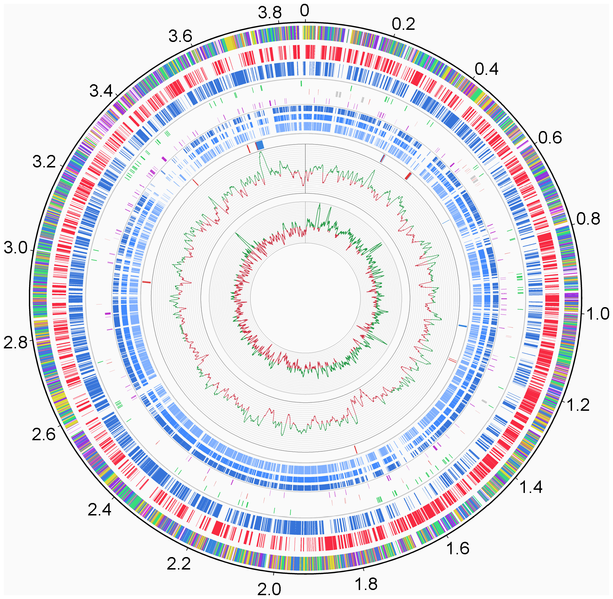Genomic Sequencing: Who Controls The Information Your Genes Contain?

The growing use of genome sequencing in medical care recently prompted the American College of Medical Genetics and Genomics (ACMG) to establish recommendations about what to do with the frequently resulting excess of information. The ACMG considers, for instance, a patient who is undergoing genetic testing in an effort to individualize their cancer therapy. Seeing the test results, the doctor discovers that the patient's sequence suggests a risk of developing Alzheimer's disease in old age.
Should the patient be told about this "incidental finding" or not? More importantly, who decides?
In a paper published on Wednesday in Trends in Biotechnology, bioethicists argue that doctors should not have the right or responsibility to provide their patients with genomic information about their future health risks.
This is in direct response to the now-controversial "Recommendations for Reporting of Incidental Findings in Clinical Exome and Genome Sequencing" published by the ACMG in March 2013. In its recommendations, the ACMG advised physicians to test anyone who is undergoing genome sequencing (usually a targeted test for a specific condition) for an entire list of clinically actionable conditions. These would include inherited predispositions to various forms of cancer and cardiomyopathy (but not Alzheimer's disease). Furthermore, according to the ACMG, physicians should then pass the resulting information onto patients — whether or not they inquire.
"A lot of people in this field would agree that no one has a right to withhold your health information from you," said Megan Allyse from the Stanford University Center for Biomedical Ethics, in a press release. "But it's problematic to suggest the inverse: that the medical system should give you information you didn't ask for and don't want."
Such an approach to medicine would not only be a challenge for patient autonomy, but would also be costly, according to the bioethicists.
"It's not clear how those costs would be passed along, either to insurers or to patients themselves," Allyse said. "The issue of cost will of course affect any patient who has limited resources — along with the hospitals, insurance companies, and government programs that pay for much of the care patients receive."
In her paper, Allyse notes that a majority of physicians, without a doubt, would agree that the conditions included in the recommendations are serious and advanced notice to patients would be helpful. She also agrees that most patients or parents would prefer their physician tell them about serious, life-threatening conditions for which they may be at risk.
Her primary complaint, then, speaks to the suggestion that anyone undergoing testing should automatically be screened for a list of genetic conditions.
"The further implication may be that we should be implementing population-based testing for serious medical conditions," wrote Allyse. A broader debate is desirable, she believes, to gain insight into whether we, as test providers, clinicians, and patients, are ready for mandatory genetic testing.
In her concluding remarks, Allyse finds the ACMG nearly coercive for its assertion that "patients have the right to decline clinical sequencing if they judge the risks of possible discovery of incidental findings to outweigh the benefits of testing." The ACMG is arguing, she wrote, that patients only be offered potentially life-saving sequencing for a condition (such as cancer) they do have "only if they are willing to accept additional, potentially devastating information about a condition they might someday have" — whether they want it or not.
"We think that's where these recommendations are problematic, because they do suggest that your physician should interfere in [your] decision by essentially saying, 'You have to accept this information.' And there is certainly evidence that some people do not want information about long-term health risks, especially in children," said Allyse.
In an unrelated study titled "Identifying Personal Genomes by Surname Inference" Melissa Gymrek and colleagues explore the common practice within the field of genomics of sharing sequencing data sets without identifiers. They report that surnames can be recovered from personal genomes by profiling short tandem repeats on the Y chromosome (Y-STRs) and querying recreational genetic genealogy databases. Essentially, the researchers deduced the identity of nearly fifty research participants whose supposedly private data could be found in large, publicly available datasets.
"A key feature of this technique," the authors wrote, "is that it entirely relies on free, publicly accessible Internet resources." In other words, anyone could potentially figure out a person's identity based on their genes.
Gymrek and her colleagues embarked upon their exploration not long after the Presidential Commission for the Study of Bioethical Issues published a report, entitled "Privacy and Progress in Whole Genone Sequencing," expressing serious concerns about personal privacy and security in whole genome sequencing.
"This report focuses on reconciling the enormous public benefits anticipated from whole genome sequencing research with the potential risks to privacy of individuals, and the protections that must be foremost in our minds as we focus our policies to facilitate such privacy and progress," the Commission wrote.
Under current federal law, health information that is "deidentified" is given different legal protections than typical, identifiable health information. Whole genome sequence data, on the face of it, seems to fall into this category. Howeber, as Gymrek and colleagues proved, it may be doubtful that whole genome sequences can ever actually be effectively deidentified.
A forthcoming article in the Hastings Center Report will continue the debate sorrounding the identifiability of genetic data, the Commission announced today in a press release. That article is authored by Amy Guttmann and James Wagner, Chair and Vice-Chair, respectively, of the commission.
Published by Medicaldaily.com



























